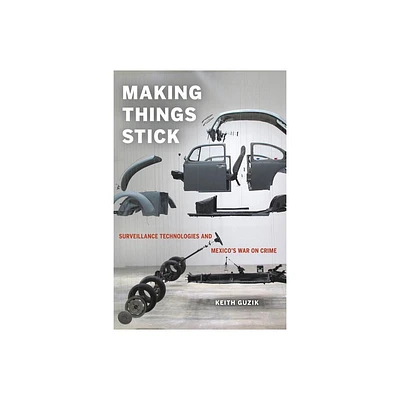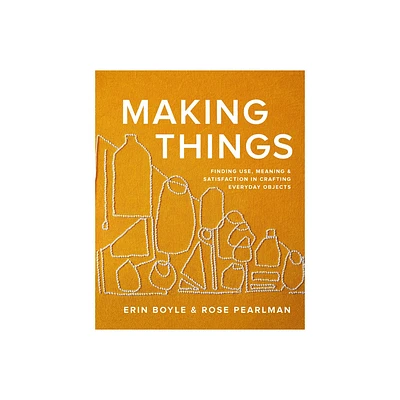Home
Making Things Stick: Surveillance Technologies and Mexico's War on Crime
Loading Inventory...
Barnes and Noble
Making Things Stick: Surveillance Technologies and Mexico's War on Crime
Current price: $34.95


Barnes and Noble
Making Things Stick: Surveillance Technologies and Mexico's War on Crime
Current price: $34.95
Loading Inventory...
Size: Paperback
*Product Information may vary - to confirm product availability, pricing, and additional information please contact Barnes and Noble
A free ebook version of this title is available through Luminos, University of California Press’s new open access publishing program for monographs. Visit www.luminosoa.org to learn more.
With Mexico’s War on Crime as the backdrop,
Making Things Stick
offers an innovative analysis of how surveillance technologies impact governance in the global society. More than just tools to monitor ordinary people, surveillance technologies are imagined by government officials as a way to reform the national state by focusing on the material things—cellular phones, automobiles, human bodies—that can enable crime. In describing the challenges that the Mexican government has encountered in implementing this novel approach to social control, Keith Guzik presents surveillance technologies as a sign of state weakness rather than strength and as an opportunity for civic engagement rather than retreat.
With Mexico’s War on Crime as the backdrop,
Making Things Stick
offers an innovative analysis of how surveillance technologies impact governance in the global society. More than just tools to monitor ordinary people, surveillance technologies are imagined by government officials as a way to reform the national state by focusing on the material things—cellular phones, automobiles, human bodies—that can enable crime. In describing the challenges that the Mexican government has encountered in implementing this novel approach to social control, Keith Guzik presents surveillance technologies as a sign of state weakness rather than strength and as an opportunity for civic engagement rather than retreat.

















